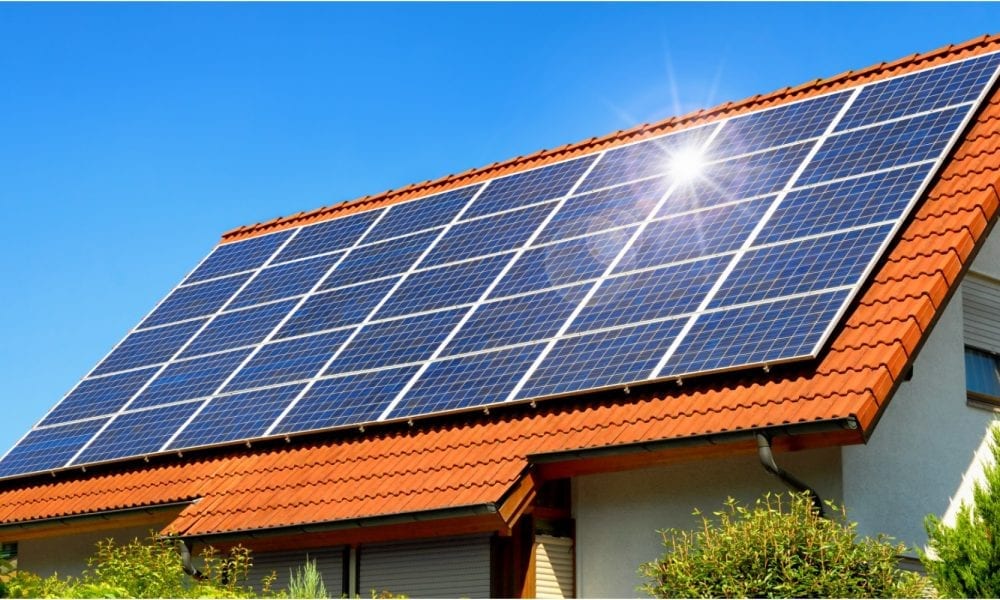
Things To Consider Before Buying Rooftop Solar Panels For Your Home

The idea of mainstream consumers being able to make use of solar power as an energy source is a relatively new idea. The fact that solar energy is so new poses challenges of its own. For example, when a person wants to buy a car, the choice is made easy because cars have been around for so long. There are hundreds of thousands of people to help you decide, and the workings of a car are widely known. Now consider solar power. There are far fewer people who have tried the route of solar energy, and there are even fewer who have managed to make use of a solar powering system.
Solar power also happens to be a pricey investment, even though it does indeed pay off in the long run. The cost of installing a full solar power system in your home is steep, and this is a major factor why so few people go through with it. Putting solar panels across your roof is a pretty permanent decision, and it isn’t one you want to waste time or money doing – and so people avoid it entirely.
But when you are armed with knowledge, you can make more informed decisions. So that’s where we come in — with all the information we can supply on the matter of installing solar panels on your roof!
Direct Sunlight
So the first and main concern is whether installing solar panels on your roof is feasible or not. This is because if your roof does not attain enough exposure to direct sunlight throughout the day, there is actually no point in you installing panels on your roof. The panels require direct sunlight.
Check The Life Span of Your Roof
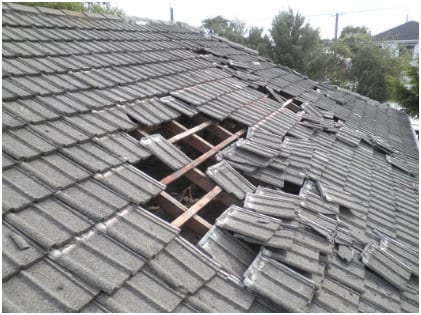 If the life span on the solar panels is 20 to 50 years, which is often the case, then you need to compare that with the life expectancy of your roof. If your roof is predicted to need a repair or renovation in 5 or 10 years or anything less than the life span of the solar panels, then you need to know that you will need to spend extra time and money on removing all the panels to do up the roof before replacing them again – so take the condition of your roof into consideration.
If the life span on the solar panels is 20 to 50 years, which is often the case, then you need to compare that with the life expectancy of your roof. If your roof is predicted to need a repair or renovation in 5 or 10 years or anything less than the life span of the solar panels, then you need to know that you will need to spend extra time and money on removing all the panels to do up the roof before replacing them again – so take the condition of your roof into consideration.
Are You A Homeowner or Not?
Another concern about your rooftop comes in when you are renting. If you are the homeowner, you have every right to put in solar panels on your roof and whatever else you wish to do to your property. However, as a renter, you are restricted from certain activities and installing permanent fixtures is one of them. So if you live in an apartment or in a rented home, you have to consider what your landlord has to say about the idea. In an apartment, you may have the option of a community panel if enough tenants agree to the idea and wish to contribute to the solar panel system.
Forward Thinking
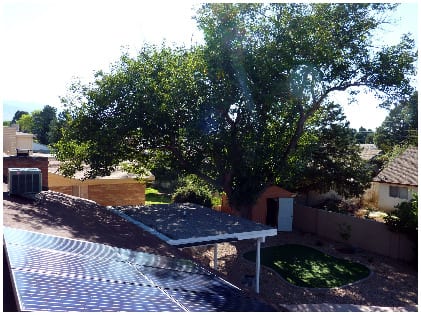 Another concern that is often overlooked is the future of your rooftop. Even if you’ve checked that your roof is structurally sound and meets the requirements of installing solar panels, none of these will be of use to you if you just planted several trees around your yard. Obviously, they will grow large enough to cast shade over your rooftop and its solar panels! So it’s essential to think ahead into the future. If your rooftop is very close to a neighbor’s home, consider the trees in their garden as well and whether it will obstruct your sunlight in the long run. You can prune your own trees, but your neighbor won’t want that, you know!
Another concern that is often overlooked is the future of your rooftop. Even if you’ve checked that your roof is structurally sound and meets the requirements of installing solar panels, none of these will be of use to you if you just planted several trees around your yard. Obviously, they will grow large enough to cast shade over your rooftop and its solar panels! So it’s essential to think ahead into the future. If your rooftop is very close to a neighbor’s home, consider the trees in their garden as well and whether it will obstruct your sunlight in the long run. You can prune your own trees, but your neighbor won’t want that, you know!
Become Energy Efficient
Ensure that you have done everything possible to reduce your electricity usage before you take the leap into getting solar panels. The amount of solar energy you will need is directly proportional to the amount of electricity you are consuming currently. Replace high-consumption appliances with energy-efficient alternatives and cut your solar power bill!
Hooking Up to The Grid
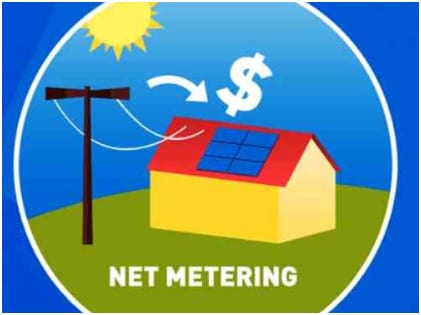 It is a good idea to do your research and see whether your state offers net metering. Find out how to connect to the grid, how long it will take before your utility is hooked up properly, and when you will begin being credited for whatever you generate. This is where you can score big bonuses on your panels because your installation will be based on your highest usage, which is your winter usage (most likely). During the lower usage months, you are actually making money and not just saving money!
It is a good idea to do your research and see whether your state offers net metering. Find out how to connect to the grid, how long it will take before your utility is hooked up properly, and when you will begin being credited for whatever you generate. This is where you can score big bonuses on your panels because your installation will be based on your highest usage, which is your winter usage (most likely). During the lower usage months, you are actually making money and not just saving money!
Now that you have an idea of the first steps to take before you decide your next move in solar energy, you can get to work!
More in Business & Investments
-
`
WWE SmackDown to Make a Comeback on USA Network in 2024
In a surprising twist, WWE’s Friday night staple, “SmackDown,” is bidding farewell to Fox and heading back to its old stomping...
November 24, 2023 -
`
Why Women Face Higher Out-of-Pocket Health Expenses
In healthcare, disparities persist, and a recent report from Deloitte underscores a significant financial gap between working women and men in...
November 18, 2023 -
`
Elon Musk vs Bill Gates: The Clash of Titans
In the realm of the world’s wealthiest individuals, a simmering rivalry has been captivating public attention. It’s not a clash of...
November 7, 2023 -
`
The Power Of Disconnecting
In our digitally driven age, where smartphones, tablets, and laptops have become extensions of ourselves, disconnecting might seem daunting. However, the...
October 31, 2023 -
`
JCPenney’s Bankruptcy: The End of an Era
JCPenney filed for bankruptcy in a move echoing the struggles of many retailers in the wake of the COVID-19 pandemic. This...
October 26, 2023 -
`
Reasons Why You Need a Financial Plan
Financial planning is not just for the wealthy or those nearing retirement. It’s a crucial tool for anyone seeking financial security...
October 19, 2023 -
`
How Brad Pitt Spends His Millions All Over the World
Brad Pitt, the charismatic Hollywood superstar, has left an indelible mark on the silver screen and made an impact in the...
October 10, 2023 -
`
Gen Z’s Posh Palate: The Unexpected Rise of Caviar Culture
Amid the backdrop of a digital era buzzing with viral dances, e-sports, and niche memes, there emerges a peculiar plot twist:...
October 7, 2023 -
`
Transform Your Retail Business With Social Media Mastery
If you’re a retail marketer posting your social media messages haphazardly, you might be missing out on prime opportunities to turn...
September 26, 2023












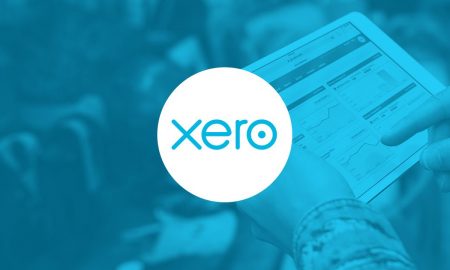


You must be logged in to post a comment Login